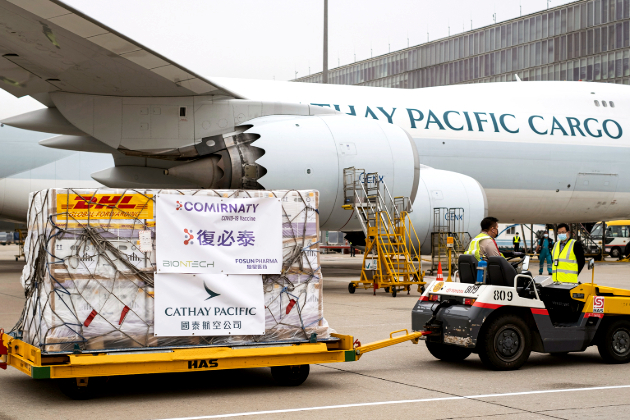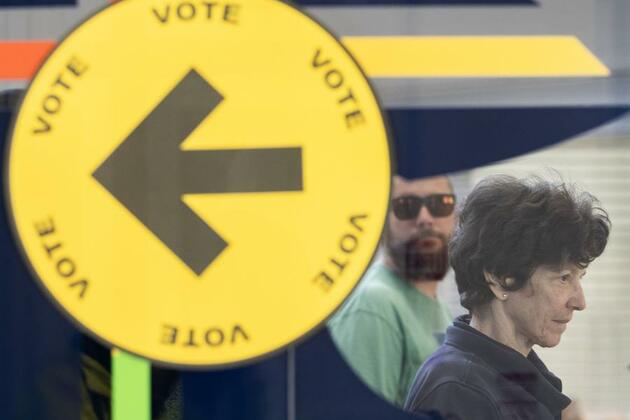Where can Black children go in summer? Black families face disparities and need equitable options
The Conversation
29 Apr 2025, 14:52 GMT+10

For many Black families, summer months can be a relief and a stress. The stress is because of the precariousness of summer programming in Canada.
Typically for families with school-aged children, summer planning usually starts in February or March, when most registration begins. The logistics around finding quality summer programming can be challenging. If you are a newcomer to Canada with financial limitations, navigating the different buffet of summer camps and affordability can be daunting.
The stress of finding a safe space for your children while also making sure that you're not overspending and can also provide food and shelter is a constant struggle for Canadian households, including many Black and racialized parents.
For many Black and new immigrant families with school-aged children, the summer months pose serious mental, physical and financial challenges due to the lack of support and high costs of summer programs for school-aged children. Navigating these disparities can get complicated.
Many Black parents are left with taking risks to ensure that they keep their jobs during the summer while juggling to find a culturally relevant program and a safe place for their children to stay during work hours.
The cost of summer programs varies from province to province. On average, day camps can range from $35 to $500 per week, and overnight camps can range from $300 to $1,000 per week for the same period. For a family with three or more children, the cost of summer programs can total over $12,000 each year and with no tax credit, this can contribute to a negative financial investment.
The reality is that families need accessible summer programming and education support. Prioritizing funding based on community and student needs and investment in community learning centres and programs is paramount.
A lack of quality, accessible and affordable options for Black families is one reason I founded Canahari Multidisciplinary Summer Program in Regina, Sask. Canahari was designed to help address what could otherwise be the growth of social, educational and economic disparities during the summer months.
A contrast exists between parents capable of enrolling their children in frequent literacy-enhancing activities within high-quality summer programs and those from underprivileged backgrounds.
The latter have limited access to such high-quality resources. This is evident in their children demonstrating what educators assess as being less prepared for school and less able to engage with it than their more privileged peers.
Studies have found that a lack of summer learning negatively impacts the educational progress of children from low socioeconomic status. These impacts further widen the achievement gap. For these reasons, implementing a national education policy to mitigate differential summer learning loss is crucial for academic success and personal development.
Factors such as transportation, work schedules, summer programming fees, program reputation, culturally responsive summer programming and affordability are major factors contributing to educational inequality gaps. Many studies have shown social and economic status and race or ethnicity contribute to the disparities in academic achievement and summertime learning.
In the summer, children from low-income households experience declines in reading achievement, while middle- and high-income children improve. These experiences have often been overlooked or ignored, and continue to negatively impact social connectedness, mental well-being and academic success.
Finding an affordable summer camp is one thing. Doing so while ensuring your children feel included and safe is a top concern for Black parents (and their kids).
Scholars have examined sources of inequalities in students' academic skills for decades, with numerous studies focusing on socioeconomic status and race or ethnicity. The complexities of these disparities challenge the meaning and intent of quality education in Canada.
Historically, education has been a powerful tool for social, political and democratic empowerment and a means for personal growth and societal progress for Black people.
However, Eurocentric education has been a tool that reproduces inequities and has regulated or disciplined Black students in negative ways that undermine the cultural values of Black students and parents. Not only this, these systems challenge fundamental Africentric knowledge systems and moral frameworks.
Education scholar George Dei has argued we must disrupt the myth that mainstream education is "colour blind."
For Black children, schools are sites for recurring racist and traumatic encounters and summer programs are no exception. New policies are needed that disrupt and are accountable for addressing anti-Black racism and acknowledge the lived experiences and struggles of Black people.
Summer programming needs to be deprivatized in Canada to ensure reimagined, consistent, equitable and accessible educational programs during summer. Summer programs are now sources of revenue, and the commercialization and marketization of summer programs make it challenging for grassroots organizations to compete in the this market.
Recent educational reforms tend to focus on student experiences in school within the academic school calendar, while neglecting the social implications of affordable, high-quality summer programming.
Implementing a nationwide initiative (similar to the universal child-care plan) to address these challenges appears unfeasible given current political mandates.
Read more: Forgotten futures? Canada urgently needs a national discussion about young people's futures
With many provinces struggling with larger class sizes, underfunding and a lack of support for teachers, perhaps a more critical look at providing year-round educational support for students and teachers is the most logical thing to do.
A province-wide summer program network and coalition could build accessible and culturally relevant programs that prioritize early detection of learning challenges and student needs.
This coalition could also develop a more comprehensive policy and funding mechanism to ensure access, equity, quality and deprivatization of summer programs.
The $10-a-day plan, introduced by the Liberal government and supported by the NDP through Canada-Wide Early Learning and Child Care agreements with provinces and territories, was developed to improve Canada's long-standing inadequate childcare situation. A similar policy on summer programs should be envisioned.
Advocating for policies that prioritize universal and comprehensive accessible education year round could help ensure women and low-income families are not penalized for having children. This practice also promotes true gender equity in the workforce.
Collaboration between the federal, provincial, municipal and local governments and researchers on data collection and evidence-based funding is crucial in implementing a comprehensive program that considers the voices of parents, students and communities.
I intend to continue to raise awareness on this issue, with attention to how the colonial ideology of educational reform that has avoided summer programming continues reproducing educational inequalities.
So I ask: with all the complex social and educational inequalities maintained by colonial ideologies and privatized summer programs, where can Black children go in summer?
 Share
Share
 Tweet
Tweet
 Share
Share
 Flip
Flip
 Email
Email
Watch latest videos
Subscribe and Follow
Get a daily dose of Toronto Telegraph news through our daily email, its complimentary and keeps you fully up to date with world and business news as well.
News RELEASES
Publish news of your business, community or sports group, personnel appointments, major event and more by submitting a news release to Toronto Telegraph.
More InformationBusiness
SectionUS, India progress toward major trade deal covering 19 sectors
WASHINGTON, D.C.: The United States and India are advancing talks on a wide-ranging trade agreement that would cover 19 key areas,...
Toyota sets March sales record as North American buyers rush in
TOKYO, Japan: Toyota's overseas sales surged to a new March record, driven largely by a rush of North American buyers ahead of newly...
Wall Street on edge, industrials gain while techs slide
NEW YORK, New York - Uncertainty about trade negotiations between the United States and China kept investors and traders on edge Monday...
US new home sales jump as buyers seize lower rates in March
WASHINGTON, D.C.: Sales of new single-family homes in the U.S. rose more than expected in March as buyers rushed to take advantage...
BMW to integrate DeepSeek AI in China models this year
SHANGHAI, China: BMW is set to incorporate artificial intelligence from Chinese startup DeepSeek into its upcoming vehicle models in...
Cathay Pacific braces for cargo slowdown amid China-US trade tensions
Hong Kong: Cathay Pacific Airways is preparing for a slowdown in air cargo traffic between China and the United States as new trade...
Canada
SectionBeijing BBQ spot drops US beef over high tariffs
BEIJING, China: At Home Plate BBQ in Beijing, the iconic Texan brisket is about to get a new passport. The restaurant, known for its...
Explainer: What to know about Mark Carney's election as Canadian prime minister?
People wait to cast their ballots at a polling station in Toronto, Canada, on April 28, 2025. (Photo by Zou Zheng/Xinhua) Mark Carney's...
UAE participates in 18th Meeting of ICAO's Air Transport Regulation Panel in Montreal
ABU DHABI, 29th April, 2025 (WAM) -- A delegation from the United Arab Emirates, chaired by the General Civil Aviation Authority (GCAA)...
UAE leaders congratulate Prime Minister of Canada on Liberal Party's fourth term victory in Canadian federal elections
ABU DHABI, 27th April, 2025 (WAM) -- President His Highness Sheikh Mohamed bin Zayed Al Nahyan has sent a message of congratulations...
Where can Black children go in summer? Black families face disparities and need equitable options
For many Black families, summer months can be a relief and a stress. The stress is because of the precariousness of summer programming...
No takers for Pro-Khalistan leader Jagmeet Singh in Canada polls, loses seat; NDP loses party status
Ottawa [Canada], April 29 (ANI): Pro Khalistani, Canadian politician and New Democratic Party (NDP) chief Jagmeet Singh has announced...












